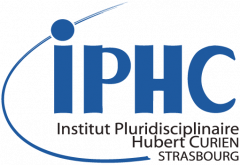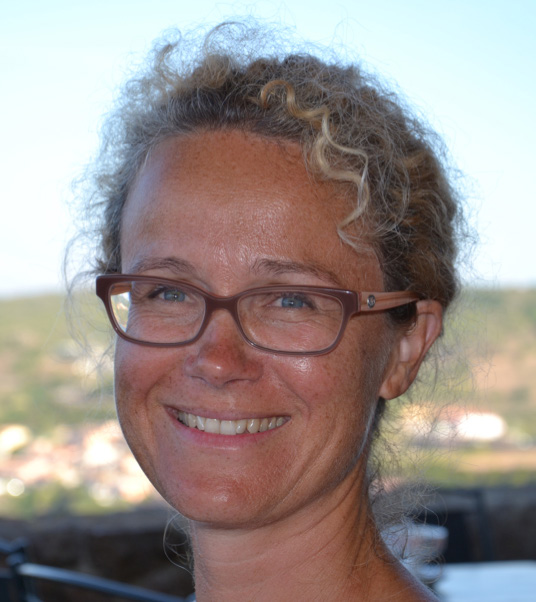IPHC-DEPE
23 rue Becquerel – BP 28
F-67087 Strasbourg
Phone: +33 3 88 10 69 17
E-mail: sylvie.massemin@iphc.cnrs.fr
My research to date has focused mainly on the eco-physiological and behavioral responses of birds to environmental constraints during key phases of their annual cycle (passage of the bad season, migration, reproduction and growth). My current work focuses on the study of the influence of urban and thermal conditions on the ecology and physiology of birds.
Research
My research is separated in three parts :
Urban environment
Urbanization leads to loss and fragmentation of natural habitats, different sources of pollution and affects biotic interactions (e.g. hosts-parasites/pathogens). This issue involves monitoring the bio-accessible part of pollutants from soil or air in the food chain and determining the ecological and physiological effects on organisms. The combined expertise of the different researchers involved makes it possible to propose three objectives for this work:
The first objective is to determine the origins and pathways taken by micropollutants responsible for environmental stress in the Great Tit, chosen here as a biological model: (i) by quantifying organic pollutants in the air (PAH, PCB and pesticides); (ii) by measuring heavy metals in soils and determining their phyto-accessibility (chemical speciation studies); and (iii) by quantifying pollutants along the food chain (plants, invertebrates and Great Tit). The second objective is to assess the ecological and physiological effects of environmental stress such as oxidative stress and telomere length, an indicator of longevity.
The second objective is to determine the effects of the urban environment on health and individual selection at the multi-population scale in the great tit (Parus major). This interdisciplinary project (molecular, physiological, ecological and behavioral levels) is a unique opportunity to coordinate an emerging collaborative network by sharing data already obtained by each team in 5 French urban-forest paired populations of great tits and by collecting new data to address the following research objectives: i) determine the effects of different levels of environmental stress on bird health and longevity and ii) assess the plasticity or micro-evolution of individuals.
Collaborators
IPHC (Strasbourg) : Josefa Bleu, Anne Boos ; ICPESS (Strasbourg) : Maurice Millet ; CEFE, CNRS (Montpellier) : Anne Charmantier, Arnaud Grégoire ; IMEB (Montpellier) : Amandine Gasc ; Biogéosciences (Dijon) : Bruno Faivre ; Chrono-environnement (Besançon) : Renaud Scheifler ; EDB (Toulouse) : Philipp Heeb ; Moulis, CNRS (Sète) : Alexis Chaine ; LBBE (Lyon) : Blandine Doligez ; LEHNA (Lyon) : Thierry Langagne ; MNHN (Paris) : Olivier Dehorter.
Fundings
project ANR Urbantit (2019-2024, PI Sylvie Massemin) and SEE-Life (2024-2029, PI Sylvie Massemin).
Ecotoxicology, measurement in captivity
At the same time, I am collaborating in an ANR project (TRAMET) aimed at studying the physiological and transgenerational consequences of trace metal element (TME) cocktails in a passerine bird, the zebra finch (Taeniopygia guttata) in captivity. We are interested in the effects on antioxidant capacity, telomere shortening, detoxifying gene expression and reproductive success. In addition, we also want to verify whether maternal effects can be adaptive and persistent over several generations. This work will provide a better understanding of the role of a specific urban stress factor and thus help identify the specific effects of this source of pollution in the city. This could help improve the urban environment for wildlife.
Funding
project ANR Tramet (2021-2025, PI Josefa Bleu)
Effects of increasing environmental temperature
Our ability to quantify and predict the magnitude of the effects of global environmental changes represents one of the major challenges of the 21st century. These changes are characterized by a gradual increase in ambient temperature over time, but also by an increase in the frequency of climatic anomalies, such as heat waves. These temperature changes can radically alter species phenology, their geographical distribution, trophic networks, interspecific interactions, but also the life trajectories, behavior and physiology of individuals. Using a multidisciplinary, integrative and longitudinal approach, the aim of this project is to understand the effects of thermal disturbances on key physiological mechanisms, and the consequences on the life history trajectories of urban birds.
Collaborators
IPHC (Strasbourg): Sophie Reichert, Antoine Stier
Funding
Marie Curie (2022-2025, PI Sophie Reichert)
Education
I teach at the Faculty of Life Sciences at the University of Strasbourg
- Bachelor’s degree in Life Sciences (common core and Cellular Biology and Physiology of Organisms): animal biology, general ecology and population ecology
- Master’s degree in Ecophysiology, Ecology & Ethology: Functional Ecology, Evolutionary Ecology, Methodological Tools, Metapopulation, Biodiversity
Member of committees
- CSRPN, Regional Scientific Council for Natural Heritage (since 2005-2015)
- Member of the derogation commission of the Doctoral School of the Faculty of Life Sciences (2013-2023)
- Member of the scientific council of the Doctoral School of Life and Health Sciences (ED 414) (2013-2023)
- Member of the Faculty Council (2021-2023)
- Deputy Director of ZAEU, Urban Environment Workshop Zone, INEE, CNRS (2016-)
- Member of ZATU, Uranium Territories Workshop Zone, IN2P3, CNRS (since 2018-)
Responsibility
- Head of the Department of Ecology, Physiology and Ethology (DEPE) (January 2024-)
- Head (2009-2024) and co-head (2024- ) of the Master of Ecophysiology and Ethology at the Faculty of Sciences of the University of Strasbourg
Participation in other projects
- 2019-2023 ANR EVOL-COG (PI: Blandine Doligez, CNRS)- Cognition in a changing world: exploring the evolutionary potential of cognitive abilities in the wild
- 2022-2026 ANR TRAMET (PI: Josefa Bleu, CNRS)- Trace metal cocktails in birds: physiological and transgenerational effects
- 2022-2026 ANR ToxSeaBird (PI: Olivier Chastel, CNRS) – Occurrence and toxicity of legacy and emerging Perfluoroalkyl substances (PFAS) in seabirds: A large-scale survey in overseas and metropolitan France

